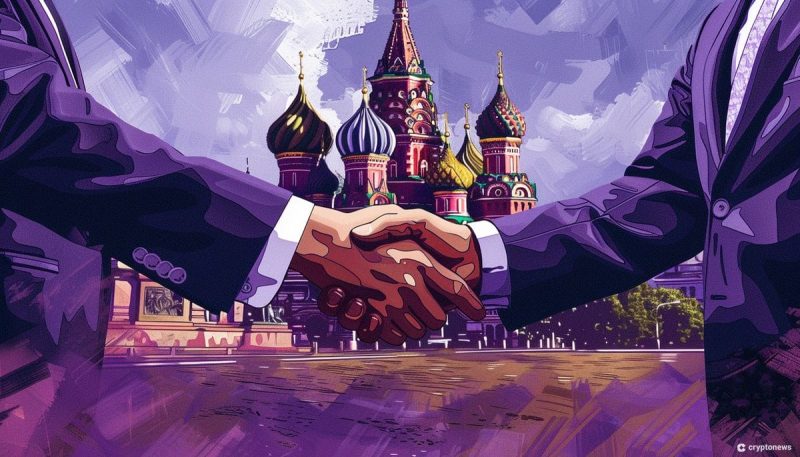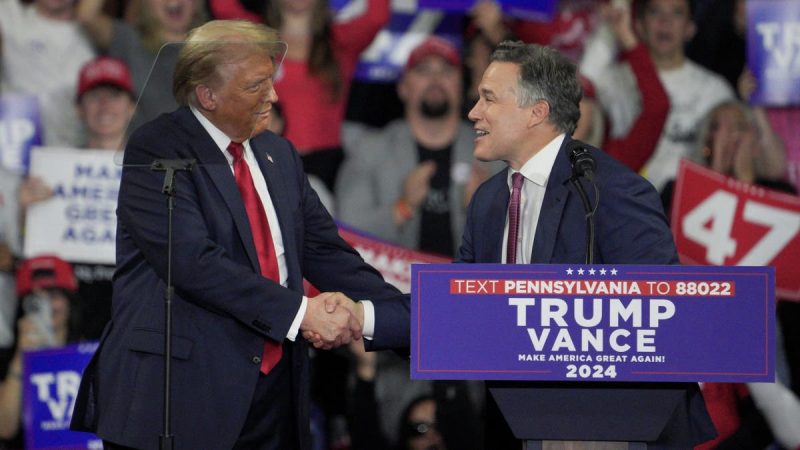
Russian Central Bank, Ministry of Finance to Settle Crypto Policy Differences
The Russian Ministry of Finance says it wants to settle its long-standing crypto policy differences with the nation’s Central Bank.
According to the media outlet RBC, Finance Minister Anton Siluanov said he was “sure” his ministry and the bank would soon “come to an agreement” on crypto regulation-related matters.
Russian Central Bank Eager to Break Crypto Impasse?
Speaking at an event held at a state-run financial university, Siluanov said:
“I am sure that [the ministry] and the Central Bank will come to an agreement. This issue has been discussed for several years. We cannot prohibit the circulation of cryptocurrencies. Therefore, we need to regulate this [market]. I am sure that we will find a solution.”
The Ministry of Finance and the Central Bank have been locked in an unproductive crypto policy-related impasse for years.
The government agency wants to regulate and tax crypto exchanges and traders, but the bank has previously called for a China-style blanket ban.
The ministry tried to break through this impasse in early 2022, when it unveiled a comprehensive draft bill on crypto regulation.
Crypto in Russia: More People Using Tokens for Payments, Claims Academic
More people are using crypto in Russia than ever before, a leading Moscow-based academic has claimed.#CryptoNews #Russiahttps://t.co/XtzNVWeN7h
— Cryptonews.com (@cryptonews) February 20, 2024
The bank shot back with its own rival bill, proposing an almost total ban on all crypto-related activities.
Neither bill made it past the committee stage at the State Duma, and the crypto sector has remained in limbo ever since.
This led to a downgrading in the nation’s FATF compliance rating last month, and calls from government bodies to fast-track regulation.
However, the war in Ukraine and resulting Western sanctions appear to have forced the Russian Central Bank’s hand.
Russia will hit back at the US and its allies if its foreign assets are seized, says the country’s finance minister https://t.co/O4uRvW74KD
— Bloomberg Economics (@economics) February 26, 2024
The bank has grudgingly conceded to soften its stance on industrial crypto mining, which is now booming in Russia.
It has also agreed to make some concessions on the use of crypto as a payment tool in international trade.
And it is here that Siluanov sees common ground for legislation. He said there was a “need to work together with the Central Bank on the issue of identifying possible options for using cryptocurrencies for settlements, both within the country and abroad.”
The Russian Finance Minister Anton Siluanov, speaking in 2023. (Source: CGTN/YouTube)
Russian Crypto Mining Industry Booms – Will Bank Make Concessions?
The minister also claimed that the bank had “agreed to hold a meeting to discuss [crypto] mining.” He said:
“We need to talk about what can and cannot be done with cryptocurrency. We have now agreed, with the Central Bank, to discuss the issue of mining. We must talk about whether [mined coins] can be used to make settlements within the country and in international settlements.”
However, the bank is unlikely to make such sweeping concessions. The bank’s long-serving Governor Elvira Nabiullina has repeatedly stated that she will not tolerate crypto’s “entry into the Russian economy.”
Indeed, Siluanov admitted that both the ministry and the bank were “inclined” to ensure that mined tokens were used “for external payments.”
Such talk could resurrect plans to create a state-owned crypto exchange that essentially buys Russian miners’ coins and sells them to firms that pay for overseas goods in crypto.
Russia’s central bank holds interest rates unchanged as it navigates inflation risks https://t.co/7Dxbt4PVIu
— Bloomberg (@business) March 22, 2024
Russian Mining Tax Windfall on the Cards?
Russian crypto miners have said legalizing their industry could provide the state with a $540.3 million windfall in tax revenue.
Industry chiefs have claimed they are ready to invest $4 billion in new multi-purpose data centers, which could also save Moscow $32.4 million in tech investment.
Miners have become frustrated at Moscow’s refusal to legalize their industry, instead leaving it in a quasi-legal grey zone.
Crypto mining is neither legal nor illegal in Russia, a fact that has led to much legal frustration in the nation.
They have also hit back at the Ministry of Energy’s controversial plans to hike their electricity tariffs by up to five times.
The post Russian Central Bank, Ministry of Finance to Settle Crypto Policy Differences appeared first on Cryptonews.

